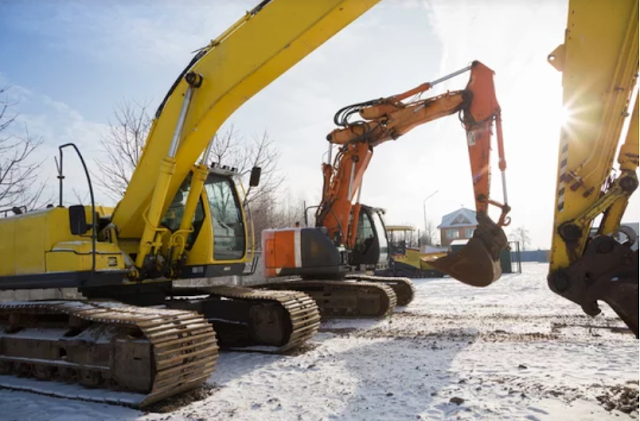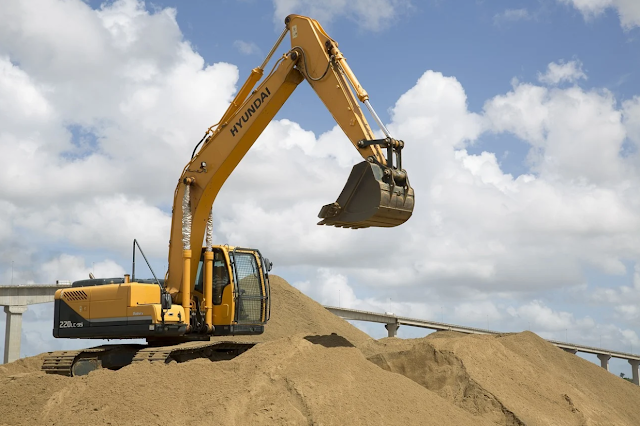Is your backyard calling you for
a digging task with a trench? Sure, a shovel can get the job done, but you put
yourself at risk of severe back pain or maybe even breaking it, thanks to the
rough ground. On the other hand, you could use a trench digger and save
yourself a lot of trouble!
This is because trench diggers
are extremely flexible machines commonly used to dig up a drainage ditch and
create a path for cables and pipes, build building foundations, landscaping,
and so much more.
So do you need a trench digger?
Or would manual digging using a shovel suffice? In this article, you will read
up all about trench diggers to help you whether or not you need one for your
projects.
So without further ado, let’s get started!
The Difference Between Trench Digging
And Manual Digging
In short, the only major
difference between trench digging and manual digging is that one is a
mechanical process, and the other is a manual process.
Undoubtedly, manual digging is
the cheaper option. You do not have to invest a lot of money to buy big fancy
tools. This includes tools like shovels, pickaxes, and so on, which work well
if you only want to dig up the first few layers of the top ground.
However, if you are unsure of how
to manually dig out a ditch, you might even excavator hire Perth, which
adds to the labor costs. Therefore, you will be spending a hefty penny, even if
the tools cost less.
Moreover, manual digging can take
a huge chunk of your time and might take a few days to complete the job.
On the other hand, a trench
digger is a mechanical process and typically only takes a few hours to get the
job done. Because of this, you will have a lot more time to create tracks to
lay pipes and cables, and everything there to do.
While a trench digger costs more
than a shovel or a pickaxe, it does not demand much physical labor and time.
The instructions on how to use a trench digger are also fairly easy. This way,
you can get the job done independently without shelling out extra money for
professional help.
And the best part about using a trench digger is that you can get a uniformly straight result after using it!
What Is The Best Way To Use A
Trench Digger?
If you decide to use any
mechanical tool for digging purposes, you should first be mindful enough to
take the necessary safety precautions. Make sure to go through the operation
manual first and familiarize yourself with the controls of the tool.
Remember to also dress properly
in safety goggles, hearing aids, helmets, snug-fitting outfits, and so on. And
finally, check the trench for any loose bits and secure them in before you get
started.
Make sure to also clear the
trenching ground of sticks, rocks, labor-saving gravel as they might damage the
blades of the trencher when in use. This is an extremely important safety check
if you want to keep the utility lines intact without cutting through them.
If you are unsure of where they are located, please reach out to the local utility services before you start digging through.
Step 1: Prep The Trench Digger
First things first! Switch on
your trench digger and start giving it a little push. Next, turn the key switch
on, reduce the throttle level, and keep the transmission neutral. Keep in mind
to also check if the hydraulic pump is turned off.
When you start trenching the
ground, make sure to lock the wheels and the blades in place. However, if you
want to move it around, unfasten the wheels and move it around.
Once the trench digger is up and running, fuel the engine with some gas and initiate the movement of the hydraulic pump.
Step #2: Get Digging
Once you have started to dig
through the ground, join both the wheels to help them work together
simultaneously. Next, pull up the throttle and throw the lever to get the chain
moving and spinning.
All you need to do now is lower the bar and get busy digging! Make sure the gas is on a full-throttle mode and use the transmission control to change the speed when needed.
Step #3: Move In Reverse
Once the trench digger’s bar is completely into the ground, you need to start putting the machine in a backward motion to help it move in reverse.
How Can A Trench Digger Help You
For Your Project?
In most situations, trench
diggers are used in infrastructure and construction sites as there is a lot of
heavy lifting to do in these settings. However, a trench digger is an extremely
versatile tool and can also be used for the following purposes:
●
For digging up a trench for creating
sewage runoffs, irrigation pipes, and flood prevention.
●
For building an underground
telecommunication system with utility pipes, wires, and so on.
●
To build a fence in your backyard and
dig plant holes.
●
To uproot huge trees during
renovation, maintenance, landscaping, etc.
● For cutting through huge concrete or rocks.
Wrapping Up
Now that we’ve covered the
groundwork of a trench digger, let us come back to the main question of whether
or not you need a trench digger.
Because of its versatility, cost,
time, and labor-saving properties, there is no doubt that you will benefit from
using a trench digger. This is because not only does a trench digger help for
huge architectural properties, but it can also help with smaller backyard
projects with ease.
Want to more about trench diggers or want to digger hire Perth? Give iSeekPlant a call today to see how we can help you with your next excavation project!











0 Comments